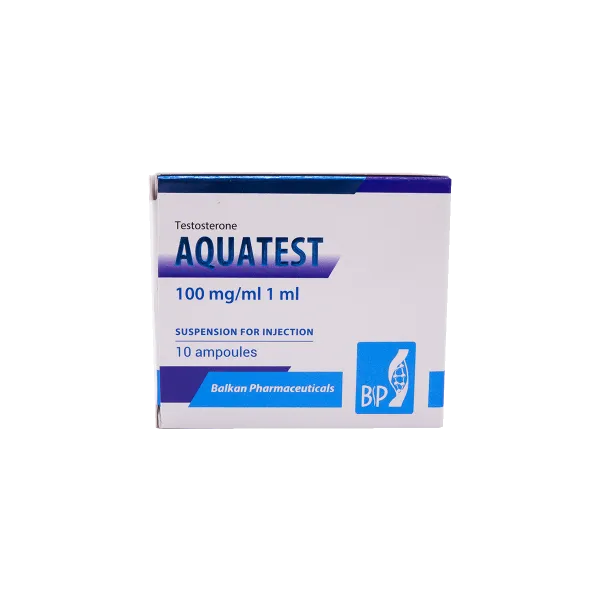No products in the cart.
Nutritional Guidance
Bulking Brilliance: Optimizing Nutrition for Effective Bodybuilding
Bulking Brilliance: Optimizing Nutrition for Effective Bodybuilding
Introduction: Bodybuilding is not just a sport; it’s a way of life for those who aspire to build a strong, muscular physique. Achieving the desired results in bodybuilding requires a combination of intense training, proper rest, and most importantly, a well-optimized nutrition plan. In this article, we will explore the concept of “bulking brilliance” – the art of strategically fueling your body to maximize muscle growth during the bulking phase of bodybuilding. The bulking phase is a critical period in bodybuilding where individuals focus on consuming a surplus of calories to support muscle growth and strength gains. However, simply increasing calorie intake without a structured approach to nutrition can lead to unwanted fat gain or suboptimal muscle development. That’s where the concept of “bulking brilliance” comes into play – the ability to optimize your nutrition to achieve the best possible results while minimizing fat gain. To embark on a successful bulking journey, it is essential to understand the macronutrients that play a crucial role in muscle growth. Proteins, carbohydrates, and fats are the building blocks of nutrition, and each has a specific role in supporting muscle development. A well-balanced diet with the right proportions of these macronutrients is vital for fueling intense workouts, promoting muscle recovery, and stimulating muscle protein synthesis. In addition to macronutrients, the timing and distribution of meals throughout the day can significantly impact muscle growth during the bulking phase. We will delve into the concept of nutrient timing, highlighting the importance of pre and post-workout nutrition, as well as the significance of regular meals to maintain a consistent anabolic state. Moreover, we will discuss the importance of adequate calorie surplus and the role of tracking and adjusting calorie intake based on individual goals and progress. Understanding your body’s energy needs and tailoring your diet accordingly is crucial for achieving optimal results without excessive fat gain. Furthermore, we will explore the significance of micronutrients, such as vitamins and minerals, in supporting overall health and optimizing performance during the bulking phase. A well-rounded diet that includes a variety of nutrient-dense foods is essential for maintaining optimal health and ensuring the body has all the necessary tools for muscle growth and recovery. In conclusion, “bulking brilliance” is not just about mindlessly increasing calorie intake but rather about optimizing nutrition to support muscle growth while minimizing fat gain. By understanding the roles of macronutrients, nutrient timing, calorie surplus, and micronutrients, bodybuilders can embark on a successful bulking journey that yields impressive results. In the following sections, we will dive deeper into the practical recommendations to help you implement these concepts effectively and achieve your bodybuilding goals.
The Science Behind Bulking Brilliance: Optimizing Nutrition for Effective Bodybuilding
Understanding Macronutrients
To achieve optimal muscle growth during the bulking phase, it is crucial to understand the role of macronutrients. Proteins, often referred to as the building blocks of muscle, are essential for repairing and building new muscle tissue. Aim to consume high-quality protein sources such as lean meats, poultry, fish, eggs, and plant-based proteins like legumes and tofu. Shoot for a target of 1.2-2 grams of protein per kilogram of body weight to ensure adequate muscle protein synthesis.Carbohydrates provide the necessary energy for intense workouts and replenish glycogen stores. Opt for complex carbohydrates like whole grains, fruits, and vegetables, as they offer sustained energy and essential nutrients. Balancing carbohydrate intake based on activity levels is crucial – consume more on training days and slightly less on rest days.Healthy fats play a vital role in hormone production and overall health. Include sources like avocados, nuts, seeds, and olive oil in your diet. While fat intake should be moderate, it should not be neglected, as fats are essential for optimal hormone function and nutrient absorption.
The Importance of Nutrient Timing
Timing your meals strategically can have a significant impact on muscle growth and recovery. Pre-workout nutrition should focus on providing easily digestible carbohydrates for immediate energy, along with a moderate amount of protein to support muscle protein synthesis. Consider options like a banana with Greek yogurt or a protein shake with some fruit.Post-workout nutrition is crucial for replenishing glycogen stores and initiating muscle repair. Aim to consume a combination of fast-digesting carbohydrates and protein within 30 minutes of completing your workout. This can be achieved through a protein shake with added carbohydrates or a balanced meal consisting of lean protein and complex carbohydrates.In addition to pre and post-workout meals, maintaining a consistent anabolic state throughout the day is essential. Aim to have regular meals every 3-4 hours, ensuring each meal contains a balance of protein, carbohydrates, and healthy fats. This approach provides a steady supply of nutrients to support muscle growth and prevents excessive muscle breakdown.
Calorie Surplus and Tracking
To effectively bulk and gain muscle mass, it is necessary to consume a calorie surplus. However, the surplus should be controlled and tailored to individual goals and progress. Start by determining your maintenance calorie intake and gradually increase it by 250-500 calories per day. Regularly monitor your progress and adjust calorie intake accordingly.Tracking your food intake using a food diary or mobile app can be instrumental in ensuring you meet your calorie and macronutrient targets. This allows you to identify any deficiencies or excesses in your diet and make necessary adjustments. Remember, consistency is key, and meeting your calorie goals consistently will yield the best results.
The Role of Micronutrients
While macronutrients are crucial, micronutrients should not be overlooked. Vitamins and minerals play a vital role in overall health, immune function, and optimizing performance. Ensure your diet includes a variety of fruits, vegetables, whole grains, and lean proteins to obtain a wide range of micronutrients.Supplementation may also be considered to fill any nutritional gaps. Consult with a healthcare professional or registered dietitian to determine if any specific supplements are necessary based on your individual needs.
Conclusions
In conclusion, optimizing nutrition for effective bodybuilding during the bulking phase requires a strategic approach. Understanding the importance of macronutrients, nutrient timing, calorie surplus, and micronutrients is key to achieving desired muscle growth while minimizing fat gain. By implementing these principles and tailoring them to your individual needs, you can embark on a successful bulking journey and achieve your bodybuilding goals. Remember to consult with a healthcare professional or registered dietitian for personalized guidance and support throughout your bodybuilding journey.
Aquatest 100mg Balkan Pharmaceuticals
46 USD
Aquatest 100mg by Balkan Pharmaceuticals is a fast-acting injectable steroid containing pure Testosterone Suspension (100mg/ml). Water-based for rapid absorption, it boosts muscle growth, strength, and endurance without ester delays. Ideal for advanced athletes. Trusted for its potency and effectiveness. Package: 10 x 1ml amps (100mg/ml) Active Substance: Testosterone hormone Product name: Aquatest, Testosterone Suspension, Aquaviron , BP Aquatest…
Practical Recommendations for Optimizing Nutrition in Bodybuilding
1. Prioritize Protein Intake
Ensure that you consume enough high-quality protein sources to support muscle growth and repair. Aim for 1.2-2 grams of protein per kilogram of body weight. Include lean meats, poultry, fish, eggs, and plant-based proteins in your diet to meet your protein needs.
2. Balance Your Macronutrients
Maintain a well-balanced diet that includes a mix of proteins, carbohydrates, and healthy fats. Opt for complex carbohydrates like whole grains, fruits, and vegetables for sustained energy. Include healthy fats from sources like avocados, nuts, and olive oil to support hormone function and nutrient absorption.
3. Strategize Nutrient Timing
Pay attention to pre and post-workout nutrition. Consume easily digestible carbohydrates and a moderate amount of protein before your workout to fuel your training session. After your workout, replenish glycogen stores and promote muscle repair with a combination of fast-digesting carbohydrates and protein.
4. Monitor and Adjust Calorie Intake
Determine your maintenance calorie intake and gradually increase it by 250-500 calories per day to create a calorie surplus for bulking. Regularly track your food intake and monitor your progress. Adjust your calorie intake as necessary based on your goals and progress.
5. Emphasize Micronutrient-Rich Foods
Include a variety of fruits, vegetables, whole grains, and lean proteins in your diet to ensure an adequate intake of essential vitamins and minerals. These micronutrients play a crucial role in overall health, immune function, and performance optimization.
6. Consider Supplementation
Supplementation may be beneficial to fill any nutritional gaps in your diet. Consult with a healthcare professional or registered dietitian to determine if any specific supplements are necessary based on your individual needs and goals.
7. Stay Consistent and Seek Professional Guidance
Consistency is key in optimizing nutrition for bodybuilding. Stick to your meal plan and track your progress diligently. Additionally, consult with a healthcare professional or registered dietitian who specializes in sports nutrition to receive personalized guidance and support throughout your bodybuilding journey.By implementing these practical recommendations, you can fine-tune your nutrition plan and optimize your bodybuilding efforts, maximizing muscle growth and achieving your desired results. Remember, nutrition is a critical component of successful bodybuilding, so prioritize your dietary choices to fuel your body for success.



